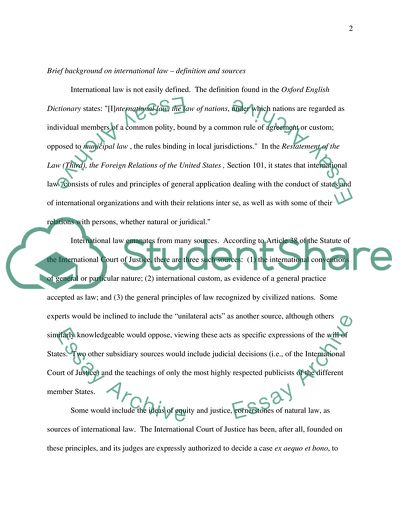Cite this document
(“Public International Law Research Paper Example | Topics and Well Written Essays - 3500 words”, n.d.)
Public International Law Research Paper Example | Topics and Well Written Essays - 3500 words. Retrieved from https://studentshare.org/law/1722687-public-international-law
Public International Law Research Paper Example | Topics and Well Written Essays - 3500 words. Retrieved from https://studentshare.org/law/1722687-public-international-law
(Public International Law Research Paper Example | Topics and Well Written Essays - 3500 Words)
Public International Law Research Paper Example | Topics and Well Written Essays - 3500 Words. https://studentshare.org/law/1722687-public-international-law.
Public International Law Research Paper Example | Topics and Well Written Essays - 3500 Words. https://studentshare.org/law/1722687-public-international-law.
“Public International Law Research Paper Example | Topics and Well Written Essays - 3500 Words”, n.d. https://studentshare.org/law/1722687-public-international-law.


